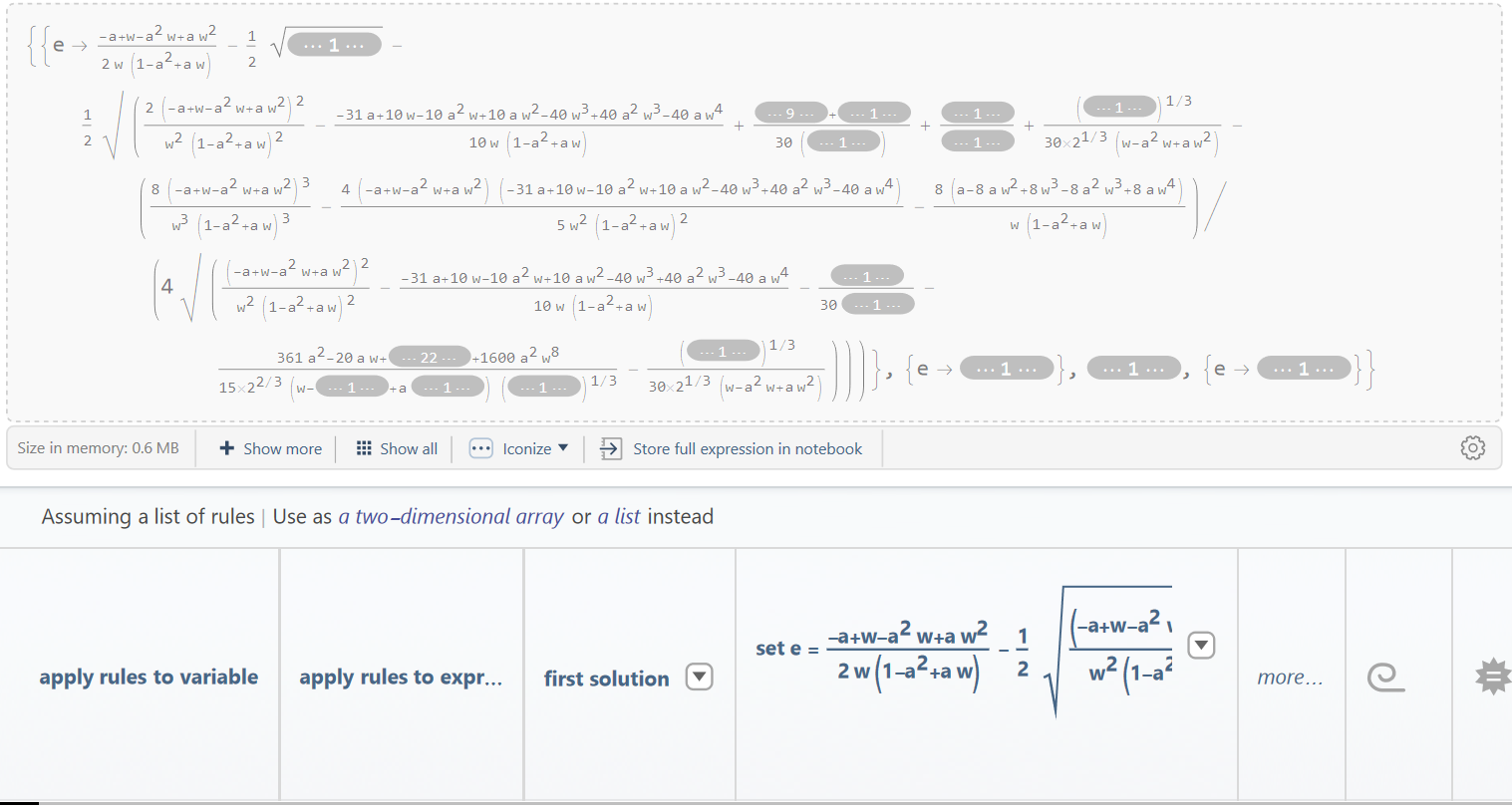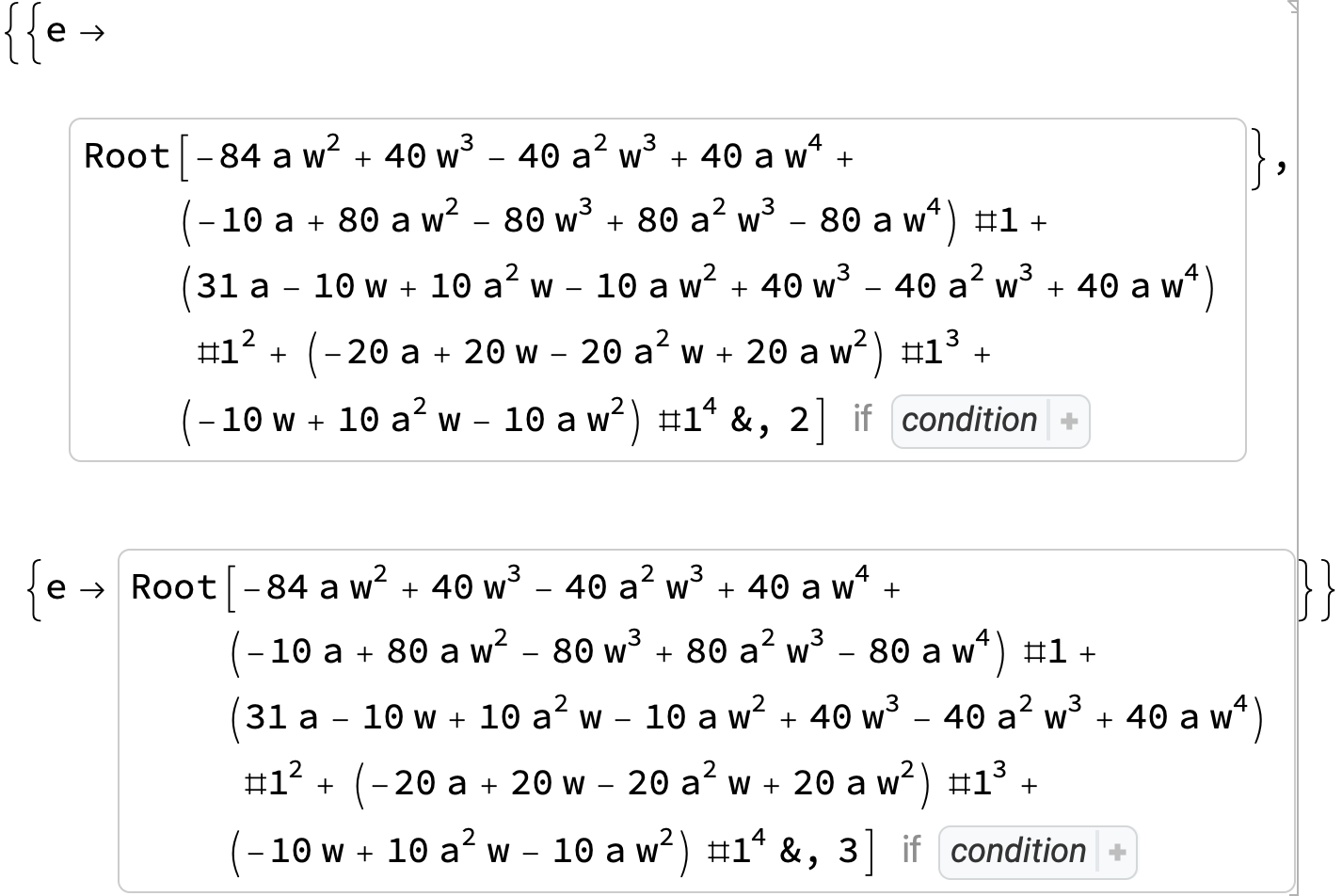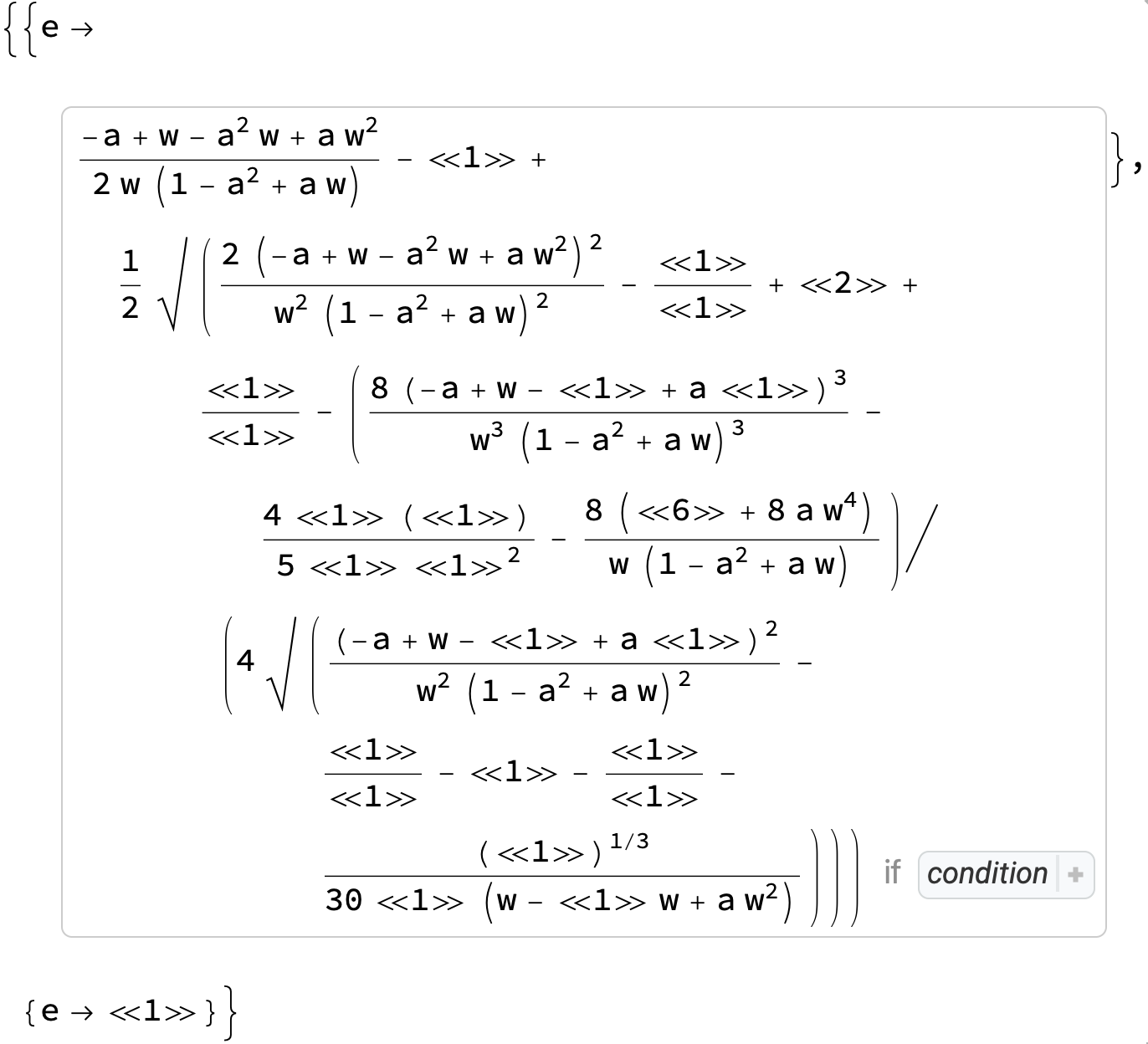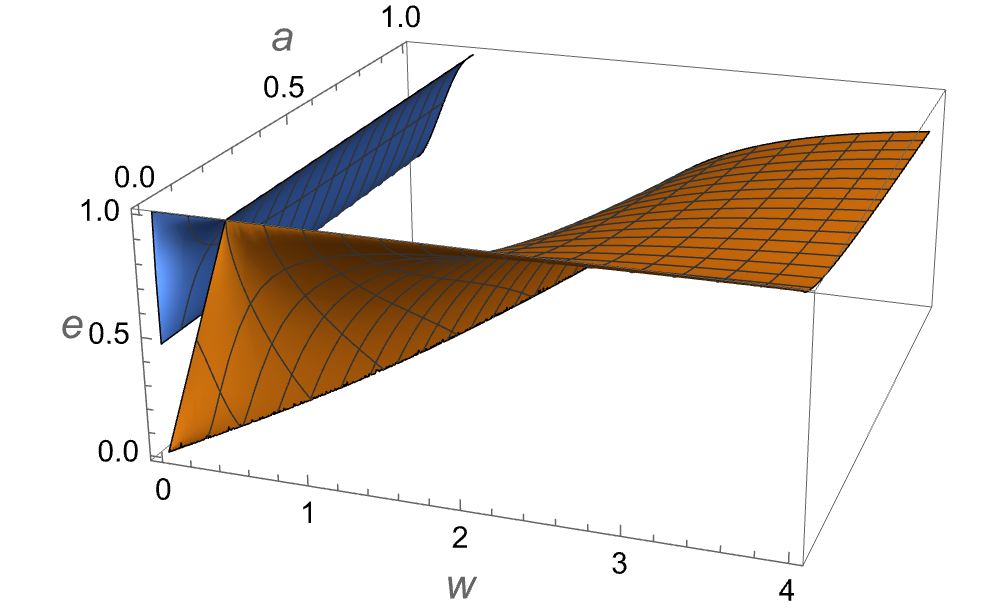I have an implicit function $F(e,w,a,b,i,n)=0$ where $0\leq e \leq 1 $, $w \geq 0 $, $0\leq a \leq 1 $, $0\leq i \leq 1 $, $0\leq b \leq 1 $, $n > 0 $. My goal is to find $e$ as an explicit function of $w$ and $a$ by assigning some values for the other variables. Below is my code.
Clear["Global`*"]
n = 1; b=1/2; i=1/10;
Solve[-(1/((1 - e)^2 w)) == - ((-((-a (i + ((1 - e) n (w/(b e^b))^(1/(b - 1)))/(1 - n e (w/(b e^b))^(1/(b - 1)))) + (-1 + a^2) (-1 + e)^2 w - a (-1 + e) (i + ((1 - e) n (w/(b e^b))^(1/(b - 1)))/(1 - n e (w/(b e^b))^(1/(b - 1)))) w^2)/(a (-1 + e) i (1 - e + i + ((1 - e) n (w/(b e^b))^(1/(b - 1)))/(1 - n e (w/(b e^b))^(1/(b - 1)))) w))) - (-((-a ((1 - e) n (w/(b e^b))^(1/(b - 1)))/(1 - n e (w/(b e^b))^(1/(b - 1))) + (-1 + a^2) (-1 + e) (-1 + e - i) w - a (-1 + e) ((1 - e) n (w/(b e^b))^(1/(b - 1)))/(1 - n e (w/(b e^b))^(1/(b - 1)))w^2)/(a (-1 + e) i (1 - e + i + ((1 - e) n (w/(b e^b))^(1/(b - 1)))/(1 - n e (w/(b e^b))^(1/(b - 1)))) w)))), e]
And I get a weird result as follows. Do you know what it means?






n = 1, b=0.5, i=0.1ton = 1; b=0.5; i=0.1or better, use exact valuesn = 1; b=1/2, i=1/10. In both cases, Solve returns right away. $\endgroup$InputFormaround theSolve[...]. $\endgroup$